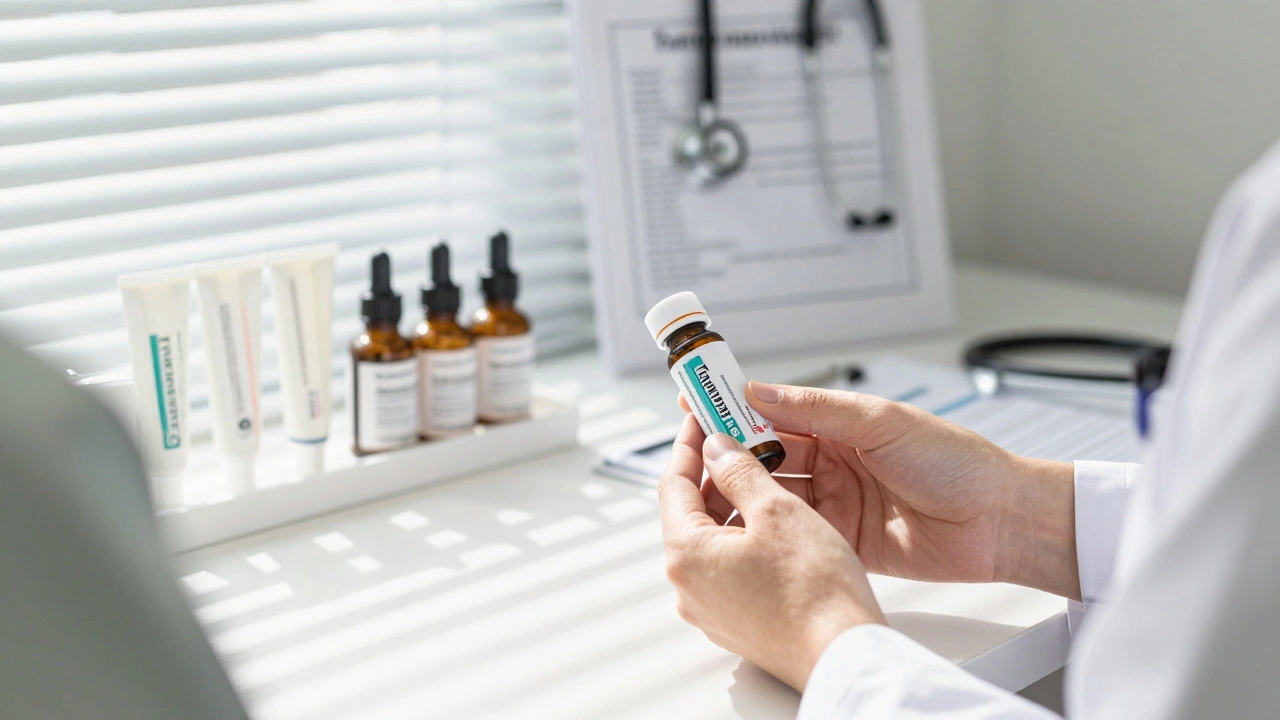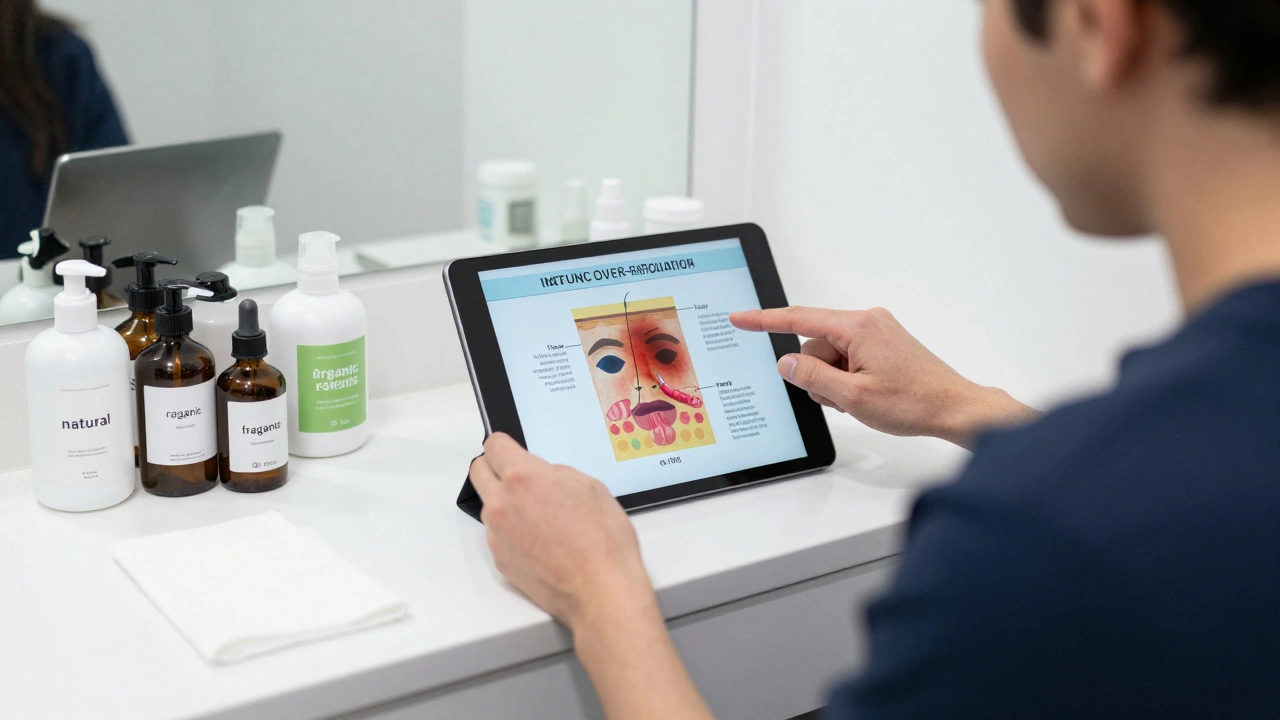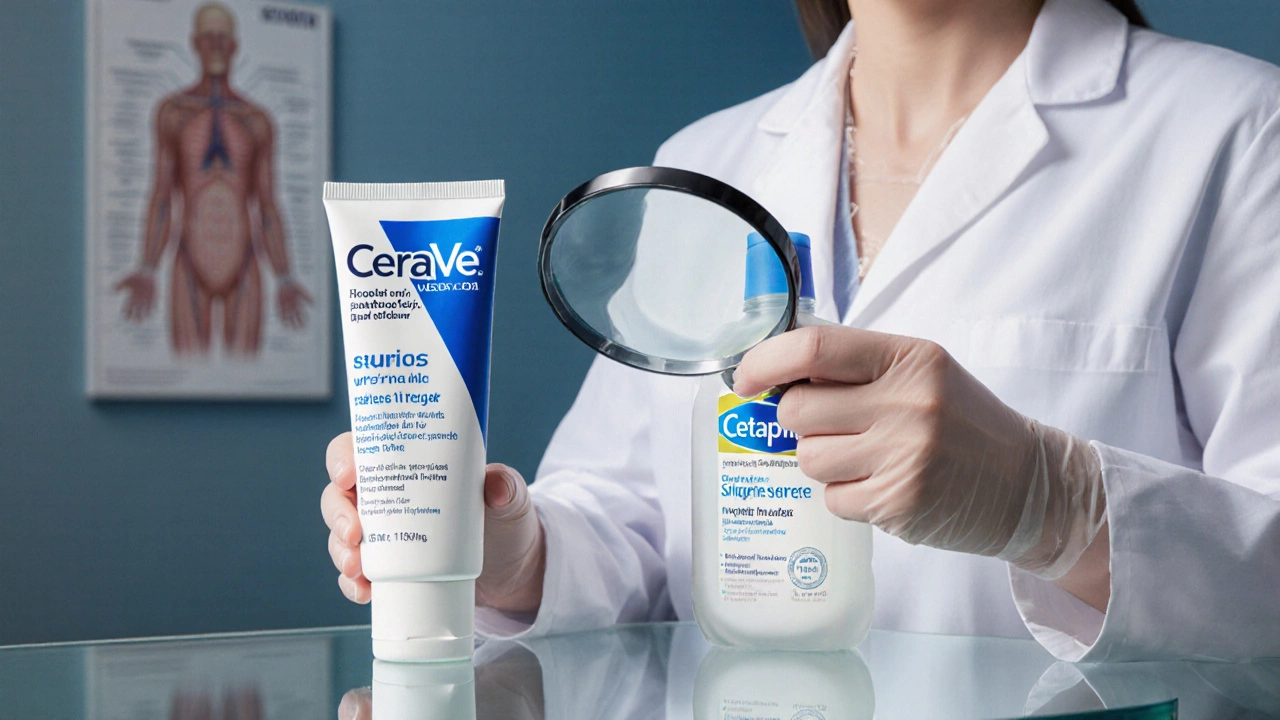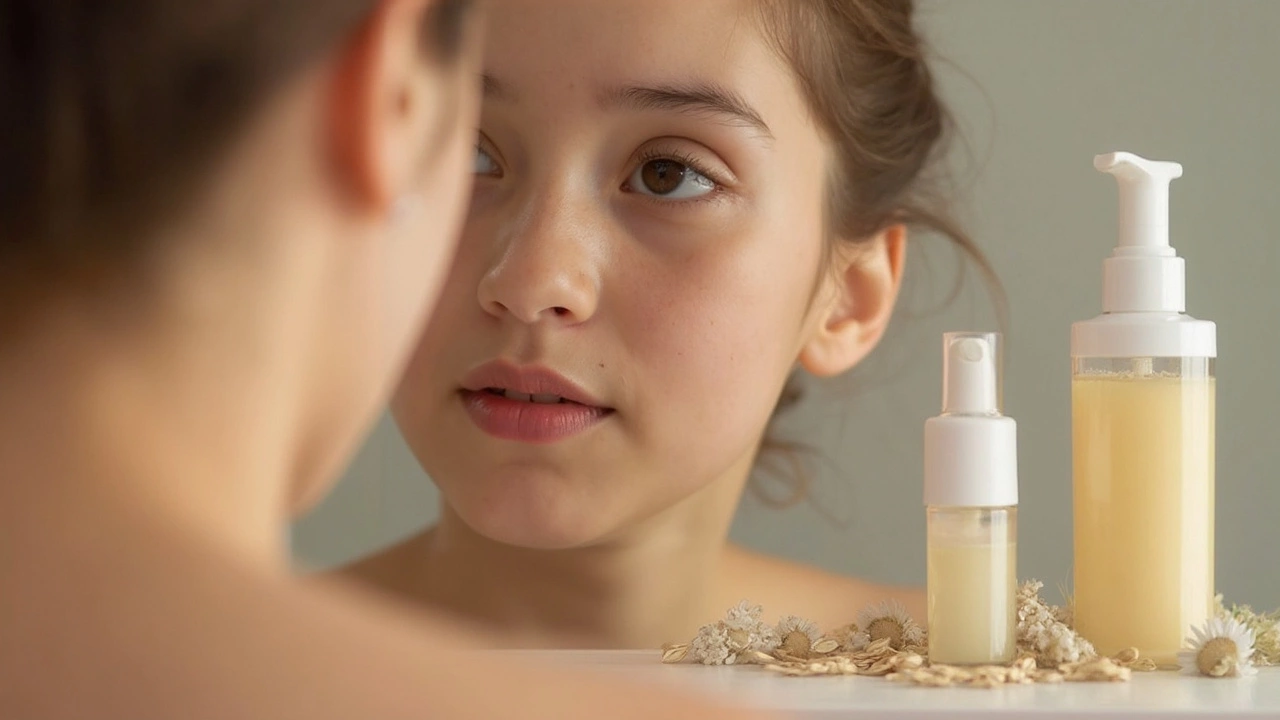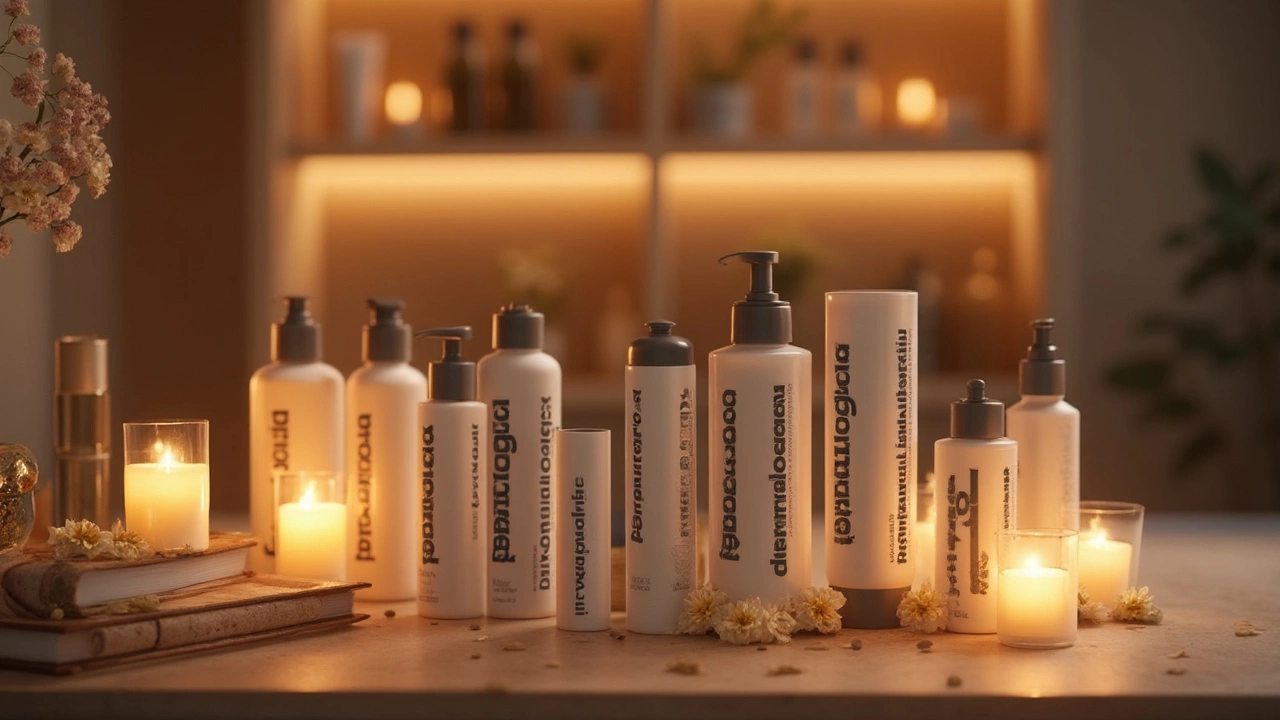Professional Skincare: What It Is and Why It Matters
If you’ve ever wondered why a spa facial feels different from your night cream, the answer lies in professional skincare. It’s not just a fancier label – it’s a set of treatments and products designed by skin‑care experts to deliver results you can’t get from over‑the‑counter bottles. In this guide we’ll cut through the buzzwords, show you how to pick the right clinician, and share the products that actually work.
Understanding the Jargon: Professional vs. Store‑Bought
When you walk into a clinic you’ll hear terms like “medical‑grade,” “esthetician‑formulated,” or “clinical strength.” These aren’t marketing tricks; they describe how a product was tested, who formulated it, and the concentration of active ingredients. A dermatologist‑prescribed cream, for example, must meet stricter safety standards than a retail serum. Brands such as Dermalogica often get called “medical grade” because they were created with input from skin doctors, even if they’re sold in salons. Knowing the difference helps you avoid cheap knock‑offs that promise the same results.
Choosing the Right Products and Professionals
Not every skin‑care professional is created equal. A quick red‑flag checklist can save you headaches: do they ask about your skin history? Do they explain why a treatment is needed, or do they push a product without reason? Articles like “How to Spot a Bad Dermatologist” remind us to look for clear communication and evidence‑based recommendations. If you have sensitive skin, the #1 doctor‑recommended brand often tops the list for calming, fragrance‑free formulas. For those chasing the celebrity glow, stars like Drew Barrymore swear by Obagi, but the brand’s potency means you should start with a lower dose and watch for irritation.
When you book a session, come prepared with a short list of questions: What’s the active ingredient and why is it right for me? How many visits will I need to see improvement? Will there be any downtime? A good practitioner will answer each one without a sales pitch. Asking these questions not only builds trust but also ensures the treatment aligns with your skin goals.
Beyond the clinic, you can boost results at home by choosing products that match the professional treatment you received. If your dermatologist prescribed a retinoid for acne, pairing it with a gentle cleanser and a moisturizer that contains ceramides will reduce irritation. Likewise, if you’ve had a chemical peel, avoid harsh exfoliants for a week and focus on sunscreen – UV protection is the single most important step for any professional skin‑care plan.
Remember, professional skincare isn’t a one‑size‑fits‑all solution. It combines expert assessment, targeted ingredients, and follow‑up care. By understanding the language, picking a reputable practitioner, and staying consistent with home‑use products, you’ll get more out of every appointment and keep your skin looking its best.
Is Medical Grade Skincare Covered by Insurance?
Medical grade skincare is rarely covered by insurance, but exceptions exist for prescription treatments tied to diagnosed skin conditions like acne or melasma. Learn how to get coverage and save money.
Read More
What Not to Say to a Dermatologist: Common Mistakes That Hurt Your Skin Care Results
Avoid common mistakes when talking to a dermatologist. Learn what not to say-and what to say instead-to get better skin care results and real solutions for your skin.
Read More
Is Professional Skincare Worth It? Benefits, Costs & Real Results
Explore whether professional skincare justifies its cost, understand benefits, risks, and how to decide if it's right for you.
Read More
CeraVe vs Cetaphil: Dermatologist Recommendation Explained
Find out whether dermatologists favor CeraVe or Cetaphil, compare ingredients, skin type suitability, pricing, and get a clear recommendation.
Read More
What Is a Professional Skincare Line? Definition, Differences, and How to Choose
Learn what a professional skincare line is, how it differs from drugstore brands, key ingredients, regulations, and how to pick the right line for your skin.
Read More
Professional Skin Care: What Is It Called and Why Does It Matter?
Curious about what professional skin care is actually called? This article cuts through the jargon and explains the different professional terms and treatments you’ll find at clinics and spas. Learn about experts behind the scenes, popular salon treatments, and the real difference between store-bought products and professional-grade care. Find out how a customized approach can help you achieve healthier, happier skin. Get tips on what to ask before booking any service.
Read More
Dermatology Associates of Virginia: Meet the Doctors Behind the Care
Curious about who’s behind the white coats at Dermatology Associates of Virginia? This article breaks down the doctors you’ll meet, their specialties, and what sets them apart. Get insider tips on picking the right dermatologist for you. Plus, learn what to expect from your first appointment and why experience matters with your skin’s health. No fluff—just practical info from someone who knows a thing or two about pet dander and real-life skin fixes.
Read More
Do Celebrities Use Obagi? The Skincare Secrets Behind the Glow
Ever wondered if stars like Drew Barrymore and Eva Longoria actually use Obagi? This article digs into which celebrities are hooked on the brand, what makes Obagi stand out in Hollywood, and how the products work. Get real talk on popular Obagi lines, expert tips for starting out, and learn if this skincare routine can work in real life, not just on the red carpet.
Read More
How to Spot a Bad Dermatologist: Signs You Shouldn’t Ignore
This article breaks down the main warning signs of a bad dermatologist. You'll learn what red flags to watch for on your first visit and what behavior sets off alarm bells. Get practical tips on what makes a good skincare pro and how to protect your health. We’ll also cover mistakes patients often overlook, plus what to do if you realize your dermatologist isn’t right for you.
Read More
What is the #1 Doctor Recommended Sensitive Skincare Brand?
Sensitive skin can be tricky, with redness, itching, and irritation just waiting for the wrong product. Wondering which skincare brand tops the list for dermatologist recommendations? This article dives into the facts, busts some myths, and points out tried-and-true tips for keeping sensitive skin happy. Learn which brand doctors trust and why it stands out. You'll also find practical tips on building a routine that actually works for your skin.
Read More
Is Dermalogica Really a Medical Grade Skincare?
Dermalogica, a well-known skincare brand, often sparks curiosity about whether it falls into the 'medical grade' category. We'll explore what 'medical grade' actually means, how Dermalogica products are formulated and used, and whether they meet the criteria to be considered as such. Get ready to understand how this brand compares to others in the professional skincare world and if it could be the solution for complex skin concerns.
Read More
Unveiling the Most Common Skin Condition in Dermatology Clinics
When it comes to dermatology clinics, the most frequent skin condition treated might surprise you. Despite a multitude of skin issues, acne remains the top contender, affecting people of all ages. This condition not only impacts physical appearance but can also influence emotional well-being. Understanding the prevalence, causes, and treatments of acne can empower patients in their skincare journey. Discover effective tips and interesting facts about handling this common concern with expert insights.
Read More
